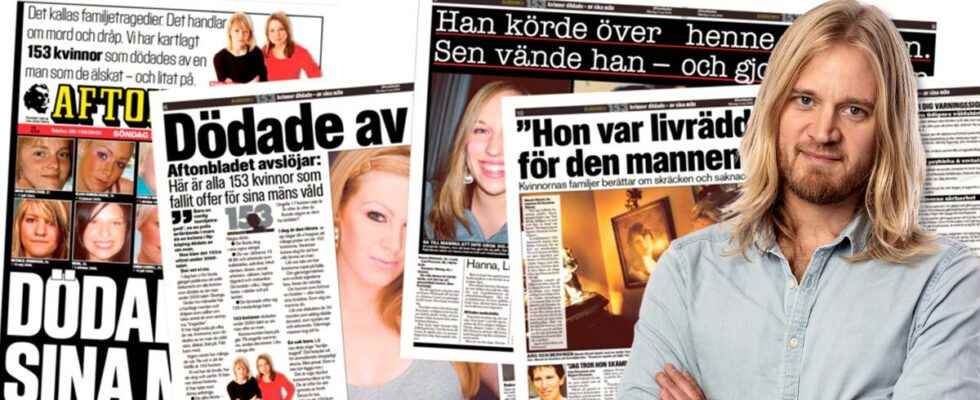“The women have been shot, killed in their beds. We know it was not their wish. On the contrary, police interrogations with relatives show that the women often had the will to live, unlike their frail husband “.
The lines come from an article in Aftonbladet in 2009, with the headline “The murders that do not count”.
The reporters Kerstin Weigl and Kristina Edblom had examined all cases during the 2000s when a woman in Sweden was killed by her husband, boyfriend or ex-husband.
We called the review “Killed women”.
Then, in 2009, the figure was 153.
Now, 2022, it’s up to 338.
For the women who were killed should not be just that, a number, Aftonbladet has since continued to count, review, report and deepen.
Our focus is to tell about the women, and to describe mistakes and system failures that led to their deaths. We start from criminal lethal violence against women in close relationships and sort out the relevant cases. Over the years, we read judgments, preliminary investigations and other documents and talk to the women’s relatives. The cases we count are the ones that are legally settled.
“No one had previously found out about the figure. We were able to reveal who the women were, how they had lived and what led to the crimes. The attention was great and the promise to the readers was to continue counting the number of women killed “, Kerstin and Kristina have told.
Their reporting is an incredible act of life, which has greatly contributed to these crimes going from being called “family tragedies” to becoming a national affair.
The review has been done in articles, television, podd – and in a book. Over the years, we have reported on women, but also the men who kill, system errors and the children who remained.
For some time now, the baton has been taken over by the merited crime reporters Linda Hjertén and Johanna Rapp. Today you can read their new articles. About Carine, eight months pregnant, who was stabbed to death with 60 stab wounds by a man who had previously shown signs of violence against her and the children. But also about Somayyeh and Lesja, two of eight women who so far this year are suspected of having been killed by a man they once loved.
Our publisher Lena K Samuelsson has called “Killed women” “perhaps our most important review ever”.
It continues, we can promise.
Facts
Here you can get help and support
Are you or someone close to you exposed to violence in a close relationship? Here is a selection of places you can turn to for help and support.
Important: Always call 112 in the event of an emergency. You can also reach the social services or social services in your municipality via the emergency number.
A national helpline for those who have been subjected to physical, psychological and sexual violence. Relatives and friends are also welcome to call.
Offers temporary sheltered housing for people who have been subjected to violence in a close relationship and honor-related violence. Receives women, men, their children and accompanying animals with placement via the social services.
The national organization for women’s shelters and girls’ shelters in Sweden gathers shelters throughout Sweden, some of which offer sheltered housing. Find a hotline closest to you via Rok’s website. Click on “find an emergency”.
Collects over 130 women’s shelters, girls’ shelters and other support activities. The website contains contact information for emergency services throughout Sweden, some of which offer sheltered accommodation. Click on “find on call”.
Network for women’s rights against men’s violence. Landline: 020-52 10 10. Advice in 70 different languages, including legal advice.
Provides support to victims of crime, witnesses and relatives.
A women’s shelter for abused women with experiences of abuse and prostitution.
Support for LGBTQI people who have been subjected to violations, threats and violence. RFSL support reception also runs sheltered housing in the Stockholm area.
If you want to talk to someone who works at the social services, you can call the switchboard in your municipality and ask to be connected to the social services.
All children can get help through Bris, Children’s rights in society.
Can help with emergency conversation and crisis support: Call 112 and ask to be connected to the priest on duty.
A support platform for young people (15–20-year-olds) who are exposed to violence in their partner relationships, offers chat every night at 20–22.
The Men’s Center in Stockholm and the county administrative boards in Malmö and Stockholm have opened the telephone line “Choose to stop” which is aimed at perpetrators of violence.
(TT, Aftonbladet)
Read more
